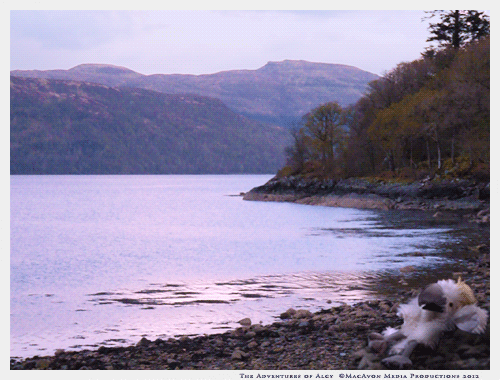
It was hard to tell whether night was falling, or whether the dark clouds had simply become much more dense overhead. But the light was low enough for the deer to emerge stealthily from the woods and venture across the great mass of seaweed which was exposed on the shores of the loch at low tide.
Algy turned his back on the loch and looked discreetly in the opposite direction, as he knew that the deer hated to be watched. The scene reminded him very much of a poem; he could hear the deer “light-footed on the still open book of earth” behind him, and they did indeed seem to disappear as they blended in with the orange-coloured seaweed in the strange, dim, silvery light:
By the stream, where the ground is soft
and gives, under the slightest pressure—even
the fly would leave its footprint here
and the paw of the shrew the crescent
of its claws like the strokes of a chisel
in clay; where the lightest chill, lighter
than the least rumor of winter, sets the reeds
to a kind of speaking, and a single drop of rain
leaves a crater to catch the first silver
glint of sun when the clouds slide away
from each other like two tired lovers,
and the light returns, pale, though brightened
by the last chapter of late autumn:
copper, rusted oak, gold aspen, and the red
pages of maple, the wind leafing through to the end
the annals of beech, the slim volumes
of birch, the elegant script of the ferns …
for the birds, it is all
notations for a coda, for the otter
an invitation to the river,
and for the deer—a dream
in which to disappear, light-footed
on the still open book of earth,
adding the marks of their passage,
adding it all in, waiting only
for the first thick flurry of snowflakes
for cover, soft cover that carries
no title, no name.
[Algy is quoting the poem Ex Libris by the contemporary American poet Eleanor Wilner.]






